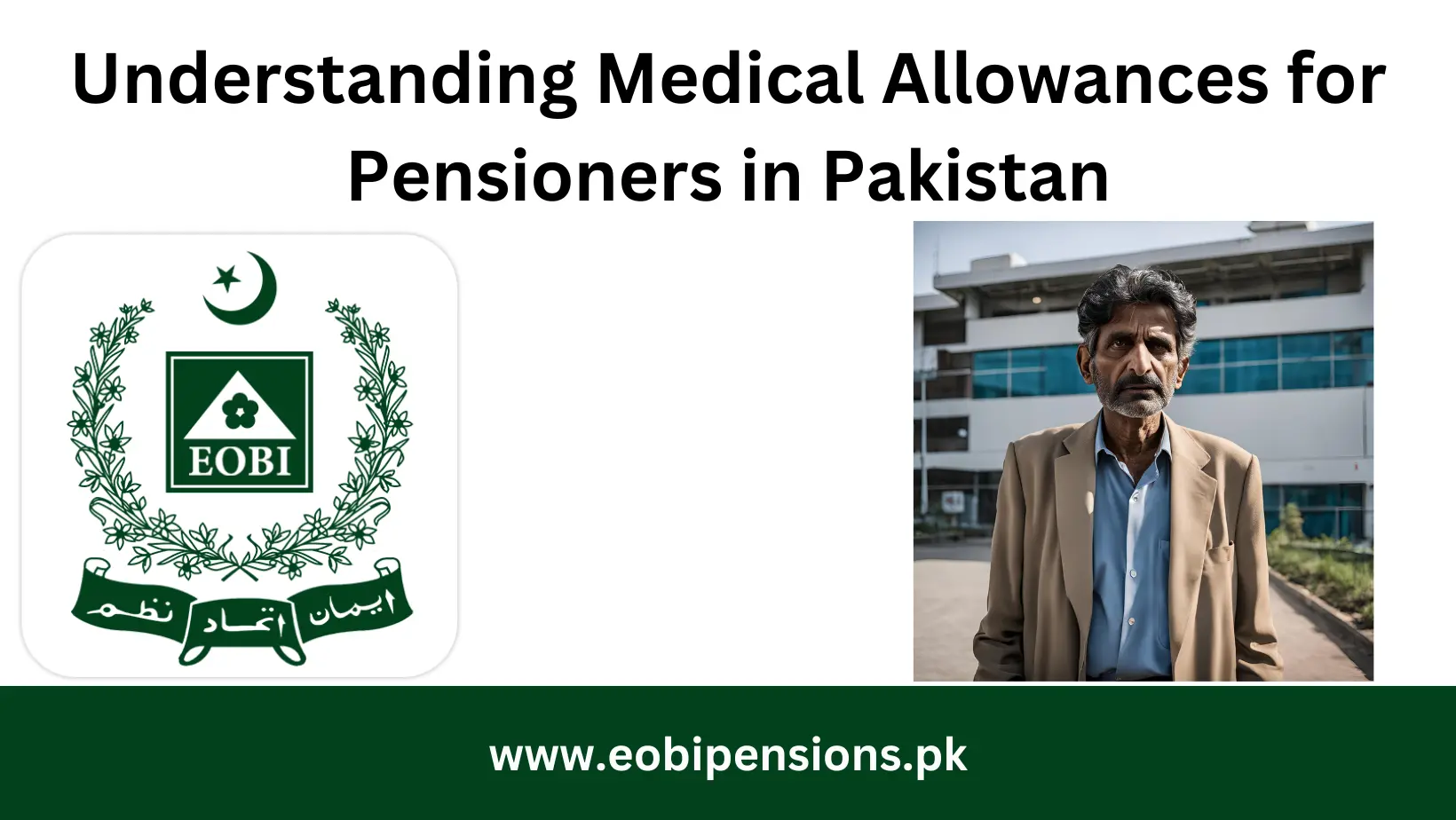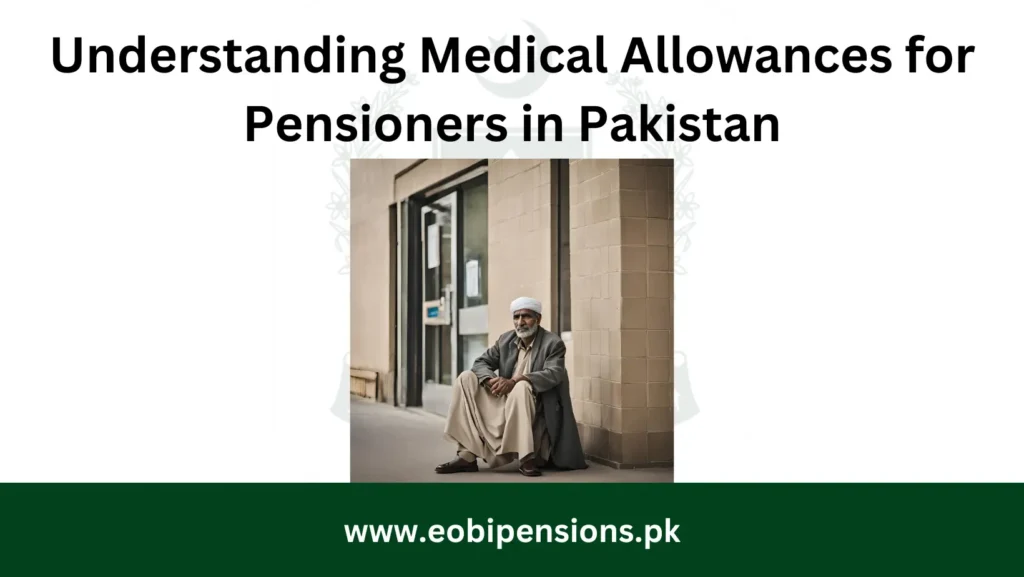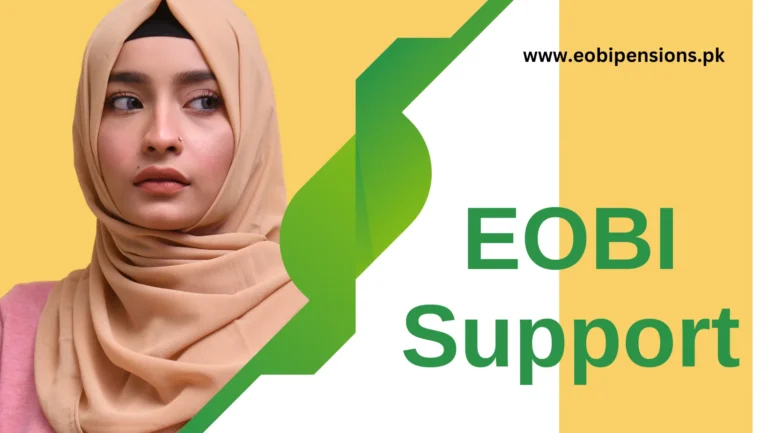Empowering Pensioners: Navigating Medical Expenses in Retirement in Pakistan

Retirement is a significant milestone in anyone’s life, marking the end of a career and the beginning of a new chapter. For pensioners in Pakistan, ensuring a comfortable and healthy retirement is a top priority. As medical expenses tend to increase with age, access to adequate healthcare becomes increasingly crucial.
In this comprehensive article, we’ll delve into the various avenues available for pensioners to manage their medical costs, including pension schemes, government initiatives, and health insurance options. We’ll also provide practical tips for financial planning and managing medical expenses during retirement.
Medical Allowance for Federal Employees and Pensioners
Federal government employees and pensioners receive a dedicated pensioners medical allowance. This allowance is calculated as a percentage of their salary or pension, respectively. Employees up to Grade 16 are entitled to 25% of their salary as a pensioners medical allowance, while those in grades above 16 receive 20%. This allowance aims to help cover healthcare costs and ensure access to medical services.
Understanding Pension Schemes in Pakistan
In Pakistan, pension schemes serve as a vital financial safety net for retirees. These schemes are designed to provide a regular income to individuals who have retired from service, ensuring their financial security during their golden years.
Types of Pension Schemes
There are primarily two types of pension schemes in Pakistan:
- Government Pension Schemes: These schemes are offered to employees of the federal and provincial governments. They typically provide a defined benefit, which is calculated based on the employee’s length of service and final salary.
- Private Pension Schemes: These schemes are offered by private companies and organizations. They may be either defined benefit or defined contribution plans. In defined contribution plans, the benefits depend on the contributions made by the employee and the employer, as well as the investment performance of the fund.
Eligibility Criteria for Pensions
The eligibility criteria for pensions vary depending on the specific scheme. However, some common requirements include:
- A minimum age of retirement (usually 55 or 60 years).
- A minimum number of years of service.
- Contributions to the pension fund throughout the employment period.
Pension Benefits and Medical Allowances
Pension benefits can include a variety of components, such as a monthly pension payment, gratuity, and in some cases, a medical allowance. The medical allowance is designed to help pensioners cover the cost of healthcare expenses, such as doctor’s visits, medication, and hospital stays. The amount of the pensioners medical allowance varies depending on the specific scheme and the individual’s grade and length of service.

Employee Old-Age Benefits Institution (EOBI)
The Employees’ Old-Age Benefits Institution (EOBI) plays a crucial role in managing pensions and providing social security benefits to private-sector employees in Pakistan. Established under the EOBI Act of 1976, this institution aims to ensure financial security and healthcare coverage for workers after their retirement.
EOBI’s Role in Pension Management
EOBI is responsible for collecting contributions from employers and employees in the private sector. These contributions are then invested to generate returns, which are used to finance the pension benefits of retired workers. EOBI also maintains a comprehensive database of registered employees and their contributions, ensuring accurate and timely disbursement of benefits.
Medical Coverage and Reimbursement Options under EOBI
One of the significant benefits offered by EOBI is medical coverage for pensioners. EOBI has partnered with various hospitals and healthcare providers across Pakistan to offer subsidized medical treatment to its beneficiaries. Pensioners can avail themselves of medical services at these designated facilities and get reimbursed for their expenses.
Specific Benefits for Pensioners under EOBI
In addition to medical coverage, EOBI also offers other benefits to pensioners, such as:
- Survivor’s Pension: In the event of a pensioner’s death, their spouse or dependent children may be eligible for a survivor’s pension.
- Old-Age Grants: EOBI provides old-age grants to pensioners who have reached a certain age and meet specific criteria.
- Funeral Expenses: EOBI covers the funeral expenses of deceased pensioners.
Government Health Initiatives for Senior Citizens
The government of Pakistan recognizes the importance of providing healthcare support to senior citizens, including pensioners. Several health initiatives have been launched to address the specific healthcare needs of this vulnerable population.
Overview of Government-Funded Health Programs
- Prime Minister’s National Health Program: This program aims to provide health insurance coverage to the most vulnerable segments of society, including senior citizens. It offers free access to a wide range of medical services at designated hospitals.
- Sehat Sahulat Program: This program is another government initiative that provides health insurance coverage to low-income families. It also covers senior citizens who meet the eligibility criteria.
- Senior Citizen Card: The government issues Senior Citizen Cards to individuals aged 60 and above. These cards offer various discounts and benefits, including discounts on healthcare services and medicines.
Eligibility Criteria and Benefits
The eligibility criteria for these programs vary, but generally, they are targeted towards low-income individuals and families. The benefits offered under these programs typically include:
- Free or subsidized medical treatment at designated hospitals.
- Coverage for a wide range of medical services, including consultations, diagnostics, and hospitalization.
- Financial assistance for purchasing medicines.
Specific Initiatives Targeting Pensioners
While most government health initiatives are open to all senior citizens, some specific programs are targeted towards pensioners. For example, some provincial governments offer additional medical allowances or subsidies to pensioners.
Health Insurance Options for Pensioners in Pakistan
While government initiatives and EOBI provide valuable medical coverage, pensioners may also consider opting for private health insurance plans. These plans offer a wider range of coverage options and can be tailored to individual needs.
Importance of Health Insurance for Pensioners
Health insurance is crucial for pensioners as it provides financial protection against unexpected medical expenses. With rising healthcare costs, a sudden illness or hospitalization can significantly impact a pensioner’s savings. Health insurance ensures that pensioners can access quality healthcare without worrying about the financial burden.
Types of Health Insurance Plans Available
- Individual Health Insurance Plans: These plans are designed for individuals and offer coverage for various medical expenses, including hospitalization, surgeries, and medications.
- Family Floater Health Insurance Plans: These plans cover the entire family under a single policy, providing comprehensive coverage for all members.
- Senior Citizen Health Insurance Plans: These plans are specifically designed for senior citizens and offer coverage for age-related ailments and pre-existing conditions.
Tips for Choosing the Right Health Insurance Plan
- Assess your healthcare needs: Before choosing a plan, carefully evaluate your healthcare requirements and identify any pre-existing conditions.
- Compare different plans: Research and compare different health insurance plans offered by various providers to find one that suits your budget and needs.
- Check the network hospitals: Ensure that the plan you choose has a wide network of hospitals in your area to avoid any inconvenience during treatment.
- Read the policy documents carefully: Thoroughly review the policy documents to understand the coverage, exclusions, and claim process.
Tips for Managing Medical Expenses in Retirement
Managing medical expenses is a crucial aspect of financial planning for retirement. Here are some practical tips to help pensioners manage their medical costs effectively:
- Create a budget: Track your income and expenses to create a realistic budget for your medical needs.
- Save for future expenses: Set aside a portion of your pension for unexpected medical expenses.
- Avail discounts and benefits: Utilize the Senior Citizen Card and other discounts offered by healthcare providers.
- Maintain a healthy lifestyle: Adopt a healthy lifestyle to prevent chronic diseases and reduce healthcare costs.
- Seek financial assistance: If you are facing financial difficulties, explore government programs and charitable organizations that offer financial aid for medical expenses.
Conclusion
In conclusion, ensuring access to quality healthcare is essential for pensioners in Pakistan to enjoy a healthy and fulfilling retirement. By understanding the various avenues available for medical coverage, such as pension schemes, government initiatives, and health insurance options, pensioners can make informed decisions to manage their medical expenses effectively.
Additionally, adopting a proactive approach towards financial planning and maintaining a healthy lifestyle can go a long way in ensuring a financially secure and healthy retirement.
Remember, retirement is not the end, but a new beginning filled with opportunities for personal growth and enjoyment. By planning and preparing for healthcare needs, pensioners can embrace this new chapter with confidence and peace of mind.





![How to Apply for EOBI Pension: A Step-by-Step Guide with Downloadable Forms [2024] 7 How to Apply for EOBI Pension](https://eobipensions.pk/wp-content/uploads/2024/07/How-to-Apply-for-EOBI-Pension-768x433.webp)
